Nutrition, Rest & Recovery
Nutrition
Food is fuel for your body. It is essential that you provide your body with the best fuel possible in order to live a healthy life. Fad diets are not the an- swer, adopt quality eating habits that last. The following recommendations are guidelines, everybody is different and you have to eat what works for you.
“Nutrition can be confusing, keep it simple. Eat lots of vegetables, lean meats, quality carbohydrates, and drink water.”
Nutritional Tips
– Eat breakfast, breakfast will get your body ready for the day.
– Eat before you feel hungry. This will avoid the craving for junk foods
– Be proactive, plan when you are going to eat and what your going to eat
– Limit the empty calories a.k.a. JUNK FOOD.
– Eat lots of vegetables, they contain quality nutrients
– Eat a variety of colorful foods. The foods on your plate should not be all the same color
– Limit soda and juices
– Bring healthy snacks to work such as; bananas, carrots, almonds, apples, pea-
nuts butter and other quality nutrient foods
– Educate yourself on what foods are good and what foods are bad.
– Drink as much water as you can stand
You are training long and hard, do not leave out such a large portion of your training. Nothing else has such a profound influence over how your body adapts to training and how well you recover. Nutrition is all day, every day
Fluid Recommendations
Hydration is very important to recovery from workouts and other activities. Having the proper amount of fluid in your body is important for performance and your health.
DO NOT LET YOUR THIRST INDICATE THAT YOU NEED WATER, IF YOU ARE THIRSTY, YOU ARE ALREADY DEHYRATED.
Problems that can occur with insufficient fluid intake:
– THIRST
– DRY SKIN
– FATIGUE
– CRAMPING
– HEADACHES
Fluid Guidelines
The following recommendations are guidelines, they are not set in stone. If it is hot or humid out, you will need to drink more water. Water is your best option to stay hydrated. Sports drinks should be used after activity or in hot temperatures to replace electrolytes. Develop a habit to stay hydrated during all activities.
– Pre-activity: 2-3 hours prior to the activity drink 16-20 oz. of water
– During: Drink 7-10 oz. every 10-20 minutes
– Post-activity: Replace fluids lost during activity, drink 16-24 oz. of water or sports drink
Check Your Hydration level
Check your hydration level while you go to the bathroom. If your urine is clear or slightly tinted, you are hydrated . If your urine is dark, you need to drink more fluid. This test may sound silly, but it works.
Rest and Sleep
Forming proper sleep and rest habits are important to optimize recovery of your body. You need at least 7 hours of sleep to rebuild muscles you broke down during the day. Develop a consistent sleep pattern, do not let internet, iPhones, or television prevent you from sleeping at night.
Rest and Sleep Tips
– Sleep in as dark as possible room
– Don’t drink lots of water before bed
-Limit the use of phones, computers, and TV’s in bed.
– A consistent sleep schedule will help recover from training
– Not enough sleep increases irritability
-If naps are needed, sleep less than 30 minutes
-If you feel tired during the day, it may be related to your diet.
“Don’t talk about it, be about it”
In order to live a healthy lifestyle you must constantly identify your weakest link and improve it until it is no longer your weakest link. Evaluate yourself and use the resources you have to help you develop as an athlete. Ask questions for more information on steps to increase recovery time and general health.
To your health
Michael Donoghue
